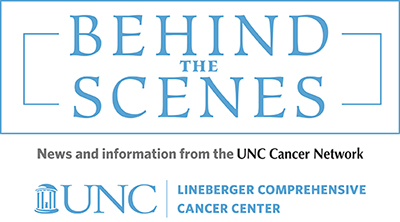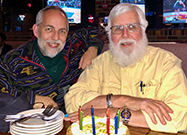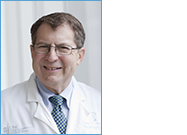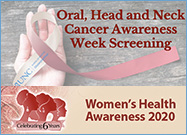Behind the Scenes — March 2020

From the Telehealth Director
Dear Friend of the UNC Cancer Network,
Spring is in the air, and, with it, three new oncology telehealth lectures for the month of March.
On the professional front, we have:
- Meeting the Needs of Undocumented Patients with Cancer with first-time UNCCN speaker Julia Rodrigues-O’Daniel, LCSW, on March 11th at noon.
- Cancer Immunotherapy Toxicities Identification and Management in North Carolina: Updates for 2020 with veteran UNCCN presenter Fran Collichio, MD, on March 25th at noon.
The last NC Community College Oncology Lecture of the 2019/20 academic calendar:
- Oncology Nutrition with oncology nutrition expert and repeat UNCCN presenter Jennifer Spring, RD, CSO, LDN on March 18th at noon.
You can learn details about all our upcoming lectures at www.unccn.org.
As always, we ask for your help in spreading the news about these great events via word of mouth, posters, email, and social media. If you are not already an official Site Coordinator or Promoter, please contact us at unccn@unc.edu to find out more about how you can help. Thank you for all that you do to reduce the cancer burden in North Carolina.
We look forward to seeing you at our March lectures.
All the best,
Tim
![]()
Interview on Male Breast Cancer
with Hyman Muss, MD
by Mary E. King
Only a small percentage of men ever get breast cancer. However, there has been more conversation about it in the news lately. In order to gain a better understanding, I interviewed one of the leading oncology specialists and researchers at UNC, Dr. Hyman B. Muss. Please see the Q&A below.
Male breast cancer has been in the news lately; how prevalent is it?
For every hundred women who get breast cancer, there’s one man; so, it’s really not very prevalent. Of all cancers of men, at most, it’s only a very small percentage.
What are some warning signs?
The symptoms are frequently a mass in the breast. Because males don’t think of breast cancer, they usually don’t do anything about the mass. Like in women, older men with a breast mass have a higher probability of having breast cancer. A man will feel a lump in his breast and think it’s a little cyst or something else benign and think there’s nothing to worry about.
How is male breast cancer detected?
Usually, the man will feel a mass, but I’ve seen men where their wives have felt it. I think doctors are attentive to this if brought to their attention. The problem is that men frequently don’t see their doctor for a mass—they just wait.
How do male breasts differ from women’s?
Men have ductal tissue; it’s just never been highly developed. They’ve never had the high estrogen levels to make milk sacs. Years ago, when they treated men with female hormones for prostate cancer (I’m old enough to have done that), you got major growth of the male breast. In fact, in a lot of transgender care, and changing from male to female, they will frequently use estrogen to make a man’s breasts grow.
Is treatment the same for men and women?
Pretty much. Much more is known about women than men, and there are some minor differences. Most males with breast cancer are treated with mastectomy. Also, most male breast cancer is estrogen-receptor-positive—so is most women’s breast cancer—but there is a higher frequency of estrogen receptor positivity in men. When you treat male breast cancer, you use the same kind of staging system, but preventive hormone-blocking therapy like we use in women is a little different. In men, we usually use tamoxifen as the major hormonal-blocking therapy if they have an estrogen receptor-positive breast cancer, which most do. In men, if we use drugs called aromatase inhibitors, which are very frequently used in post-menopausal women, most experts suggest that in men you should also use drugs that lower the testosterone and estrogen levels in the man to almost zero. So, it requires using injections that are used to treat prostate cancer in men. The use of chemotherapy and radiation therapy, when indicated, is the same in men and women.
How effective is the recommended treatment?
Pretty good. Stage for stage, most women and men do similarly well. One value a man has is that it’s unusual to see a man come in with a massive breast cancer in my experience. They are usually little bumps the size of a marble or a quarter. So, in men who have less breast tissue than women, it’s easier to detect on exam. Obviously, a women’s breast is much larger than the man’s breast, so you need mammography and other methods of detecting small cancers. Because of mammography, women tend to have smaller breast cancers than men overall.
What are the risk factors for male breast cancer?
As in women, obesity and increased age are major risk factors. There are some uncommon things like an undescended testicle, or a disease called Klinefelter’s Syndrome, which is a chromosomal disease that has risk factors. One of the major risk factors, although it only accounts for 5-10% of male breast cancer, is having been born with a genetic abnormality, the BRCA2 gene. Men who inherit the BRCA2 gene, which is one of the two major genes for hereditary breast cancer in women, have an increased risk of breast cancer of 5-10% during their lifetime. Risk appears lower in men who carry the BRCA1 gene. Other than that, it’s just bad luck.
What is the prognosis for male breast cancer?
It’s a bit worse overall, but I think if you adjust for the key tumor factors, it’s similar to women. So, it will depend on the size of the cancer, whether the nodes are involved, whether it’s hormone receptor-positive or not, how quickly it looks like it’s growing under the microscope, which is what we call the tumor grade, and also the HER2 status, which is another gene you look for in breast cancer cells. So, when you adjust for these factors the prognosis is very similar to women.
Why does the mortality rate for men differ from women’s?
The statistics show men do a bit worse overall, but I think that is because they present with larger tumors than women. Women who get screening mammography and who have their breast checked on a routine physical exam are more likely to present with smaller tumors and lower stage breast cancer.
Please explain what infiltrating ductal carcinoma (IDC) is.
We believe most breast cancers, although there is controversy, begin in the milk ducts of the breast, and so what happens is, just think if you have a pipe, which is a milk duct, and the normal cells that are lined in the pipe turn into cancer cells. If the cancer cells grow inside the pipe and don’t grow through the walls of the pipe and into the surrounding areas, that’s called Cancer in situ, in place, which rarely spreads. But when they grow outside that duct or pipe, it’s called infiltrating. So, infiltrating ductal cancer means that cancer has broken through the breast ducts into the breast tissue and is much more serious.
What are some other breast cancers men can be diagnosed with?
There are other less common forms of breast cancer like in women, but It’s mainly infiltrating ductal cancer.
If there is a family history, what is recommended?
If there is a strong family history of cancer . . . let’s say you have women who have breast cancer and a BRCA2 gene—it’s worthwhile for her brothers, her sons, and her father to consider being tested for this gene just as much as her female relatives. Men who carry the BRACA2 gene are more prone to breast cancer, and they could transmit that gene to their daughters who would then be at a very high risk for getting breast cancer and to their sons who could pass the gene on to their children. So, getting that family history is important. Most men, though, don’t have a family history of breast cancer, and like women, it’s probably due to multiple causes such as our environment, that cause DNA errors in our cells all the time and sometimes result in cancer.
Do you perform any genetic testing?
Today with men and breast cancer at UNC, we have our genetics team see all of them and explain the role of genetic testing. It may not affect the management of most of them, but it may affect their family and could predispose them to cancer in the other breast or other problems. This is why we do genetic testing on almost all men with breast cancer.
How prevalent is metastatic breast cancer in men?
It’s not very prevalent, but it does occur and we all need to be aware of it.
Do you recommend regular self-examinations for men, if there is a family history?
It’s probably not a bad idea. Yes, I would do it. You know, I don’t see these patients because I am a specialist in oncology and see patients after they are diagnosed with cancer. I think if a man had a family history of breast cancer and carries the BRCA2 gene he can discuss getting appropriate screening with his health care provider, and they can examine themselves—it’s worth doing.
Is there anything else that you’d like to share with our readers?
In this country, breast cancer is perceived to be all about women. If you’ll look at any advertisement, breast organizations, all you see are women . . . sometimes the men are lost in this.
Men are only a very small percentage of those with breast cancer, but I think sometimes they may be embarrassed that this is a “woman’s disease” and wonder if it reflects on their masculinity.
I don’t think it’s a major problem, but whereas women usually know lots of other women with breast cancer, men have probably never met another man with breast cancer.
When I was in Vermont before I came to UNC, we had a yearly breast cancer conference for the public. People came, mostly women with breast cancer, or families, and we did everything we could to inform them about breast cancer. We talked about science, we talked about screening, we talked about how to pay your bill, etc.; it was really a great day.
We had a big lunch, and at lunch, I would set up a table for the men with breast cancer. I would invite the men that we were seeing at the University of Vermont or in the community with breast cancer to come, and we’d put all these men at a table where they could meet each other. It was nice, and I think would show them they were not alone because men don’t have support groups like women. So, I think it was nice spiritually for those guys to say “Hey, here are three other guys with breast cancer.”
![]()
Free Thyroid and Head and Neck Screenings and a Women’s Wellness Conference
by Heather Sinisgalli
Free Thyroid and Head and Neck Screenings by the Department of Otolaryngology’s Division of Head and Neck Oncology.
Thyroid Screenings
The Department of Otolaryngology’s Division of Head and Neck Oncology will be offering FREE thyroid screenings at the 2020 Women’s Health Awareness event at North Carolina Central University in Durham. The event will be held on Saturday, April 4th from 8:00am-5:00pm
North Carolina Central University’s Mary Townes Science Building located at 1900
Concord Street, Durham, North Carolina. If you would like to register for the event, please click here.
Head and Neck Screenings
Oral, Head and Neck Cancers are on the rise and many people in the United States are not screened for these types of cancer. During Oral, Head and Neck Cancer Awareness Week the Department of Otolaryngology’s Head and Neck Oncology Division is offering a free Head and Neck Screening on Friday, April 10th from 12:30-4pm on the 2nd Floor of the NC Cancer Hospital.
What are the Warning Signs of Oral Cancers?
The signs and symptoms of oral cancer often go unnoticed. However, there are a few visible signs associated with these cancers that require immediate attention, including:
• A sore in your mouth that doesn’t heal or that increases in size
• Persistent pain in your mouth
• Lumps or white or red patches inside your mouth
• Difficulty chewing or swallowing or moving your tongue
• Soreness in your throat or feeling that something is caught in your throat
• Changes in your voice
• A lump in your neck
Who Should be Screened?
All adults should be screened because early detection is important for successful treatment. Tobacco and alcohol users traditionally have been considered the populations at greatest risk for these cancers. However, oral cancer cases are on the rise in younger adults who do not smoke, and recent research indicates this development is due partly to the increase of the human papillomavirus (HPV) virus, a cancer-causing infection that can be transmitted by oral sex. HPV-related oral cancers are more difficult to detect because these cancers usually occur on the back of the tongue or on the tonsils, providing even more reason to get screened regularly.
Women’s Health Awareness 2020
Transforming Communities by Enhancing Women’s Health
Saturday, April 4, 2020
North Carolina Central University
Activities of the Day 8:00 a.m. – 5:00 p.m.
Mary Townes Science Building
1900 Concord St., Durham, NC 27707
Celebrating 6 Years
A Women’s Wellness Conference
FREE health screenings, health education sessions, healthy living sessions, and health resources
What you learn could save your life!
Registration is FREE!
Register early for courtesy lunch sponsored by Duke University Hospital
Early registration begins Wednesday, January 1, 2020, and ends Monday, March 16, 2020. Register at www.niehs.nih.gov/whad.
On-site registration available day of event. For more information, email WHAD@niehs.nih.gov or call 984-287-4414.
Lead Sponsor: National Institute of Environmental Health Sciences (NIEHS), Clinical Research Branch, Office of Human Research Compliance
Co-Sponsors: Durham Alumnae Chapter of Delta Sigma Theta Sorority Inc., Durham Alumnae Delta House Inc., and North Carolina Central University Department of Public Health Education
![]()

Upcoming Live Events
March 11, 2020 | 12:00–1:00 pm
Julia Rodriguez-O’Donnell, LCSW, OSW-C
Meeting the Needs of Undocumented Patients with Cancer
unccn.org/03112020
Julia Rodriguez-O’Donnell, LCSW, will discuss ethical and practical considerations related to providing care for undocumented patients with cancer, with particular attention to considerations relevant to cancer care in North Carolina.
March 25, 2020 | 12:00–1:00 pm
Frances Collichio, MD
Cancer Immunotherapy Toxicities Identification and Management in North Carolina: Updates for 2020
unccn.org/03252020
Dr. Frances Collichio from the UNC Lineberger Melanoma group will describe relevant updates in understanding and managing toxicities of immunotherapies for health care providers throughout the state of North Carolina.
Our lecture calendar can be found at unccn.org/events
![]()

Upcoming NC Community College Live Events
March 18, 2020 | 12:00–1:00 pm
Jennifer Spring, RD, CSO, LDN
Oncology Nutrition
unccn.org/03182020
Unintended weight loss and anorexia in patients with cancer is associated with decreased performance status, reduced response and tolerance to treatment, decreased survival, and reduced quality of life. This lecture discusses the importance of proactive nutritional interventions vital to improving patient outcomes.
This and other events like it appear on our NC Community College Calendar
![]()

Recent Additions to the Learning Portal
Melissa Walter, MPH, RDN, LDN
Nutrition and the Aging Brain in Cancer Care
Our brains change as we age. These alterations become more complicated when a patient undergoes radiation therapy and/or chemotherapy for cancer. Melissa Walter will guide us in how we can support brain health while managing nutrition-related complications of treatment.
Gabrielle Brennan, MS, ACSM EP-C, CET
The Benefits of Exercise for Cancer Patients
Cardio-oncology is a newly expanding area of cancer rehabilitation in the exercise world. As a Clinical Exercise Physiologist part of the Cardiac Rehabilitation team, Gabrielle Brennan, MS, ACSM EP-C, CET, has a Master of Science in Exercise Physiology with a specialization in Cancer Care. Previously, she worked as an Exercise Specialist as the program director for the LiveFit Cancer Exercise Program. She will explore the program and numerous benefits patients gained from this program. The American College of Sports Medicine guidelines for cancer patients will also be discussed.
Andrew Wang, MD
New Indications for Radiotherapy
Radiotherapy plays an important part in many cancer treatment plans; however, recent studies suggest that we can make better use of radiotherapy in some instances. Dr. Andrew Wang, of Wang Laboratory at UNC Lineberger Comprehensive Cancer Center, will help us navigate this changing landscape.
These and other Self-Paced, Online Courses are on our Learning Portal
![]()
Learn more about the continuing education and other outreach efforts of the UNC Cancer Network. Many of the outreach programs that are part of the UNC Cancer Network are funded through the University Cancer Research Fund. Find out what UNCCN is doing by following us on Twitter at @unc_cn, join us on Facebook at www.facebook.com/unccn, unccn.org, or email us at unccn@unc.edu
We have signed you up for our newsletter with the hope that you will find value in its content. If this was forwarded to you by a colleague or friend, and you want to be added to our distribution list, please send us an email at unccnoperations@unc.edu.
Editor: Mary King, meking@email.unc.edu
Contributors: William A. Wood, MD, MPH, Director of Education and Outreach; Tim Poe, Telehealth Director: Jon Powell, PhD, Continuing Education Specialist: and Veneranda Obure, AV Support Engineer.
Copyright © 2020 UNC School of Medicine Office of Information Systems, All rights reserved.


